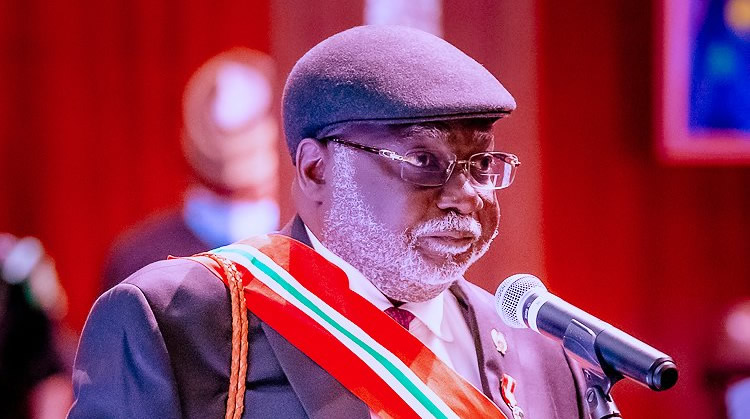Justice Olukayode Ariwoola officially retired as the Chief Justice of Nigeria (CJN) on Thursday, having reached the mandatory retirement age of 70.
During his farewell speech at the Supreme Court complex in Abuja, Justice Ariwoola announced the signing of the new Supreme Court Rules 2024, a significant update designed to meet contemporary challenges. He noted that when he assumed the role of CJN two years ago, he was concerned about the outdated rules regulating the apex court’s procedures, which had been in place for 39 years, predating the era of the internet and electronic transactions.
Justice Ariwoola explained that while practice directions have been issued over the years to address the demands of justice, the core rules had remained unchanged since 1985. “At the time the Supreme Court Rules 1985 were made, things like information technology, electronic transactions, and global telecommunications were either non-existent or in their early stages. How could such outdated rules be adequate for today’s challenges?” he said.
To address this, Justice Ariwoola formed a Rules Committee tasked with reviewing the 39-year-old rules and existing practice directions comprehensively. He expressed satisfaction with the result, having signed the New Supreme Court Rules 2024 earlier this month in accordance with Section 236 of the Nigerian Constitution.
Emphasizing the importance of up-to-date court procedures, he thanked his fellow justices, including the incoming CJN Justice Kudirat Kekere-Ekun, for their dedication. He also acknowledged the contributions of Dr. Muiz Banire (SAN) and Nigerian Bar Association President Yakubu Maikyau (SAN).
Reflecting on the Supreme Court’s workload during the 2023/2024 legal year, Justice Ariwoola revealed that 1,124 cases were filed, including 435 civil cases, 269 civil motions, 219 criminal cases, and 102 criminal motions. Despite the year not being an election year, 89 political appeals and 10 originating summons were also filed. The court delivered a total of 248 judgments and rulings, covering civil, criminal, and political cases.
Justice Ariwoola highlighted the ongoing efforts to reduce the Supreme Court’s workload, mentioning the collaboration between the National Judicial Institute, the Ministry of Justice, and the Nigerian Bar Association to host the Justice Sector Reform Summit in April. He expressed optimism that the summit’s decisions would significantly benefit the justice sector.




